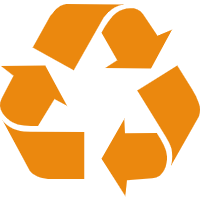Introduction
The secondhand clothing industry has witnessed remarkable growth in recent years, emerging as a significant player in the global market. This industry not only offers affordable clothing options but also contributes to sustainable fashion practices by extending the lifespan of garments. In this article, we will delve into various aspects of the second-hand clothing industry, from its supply chain to purchasing channels, highlighting key players and market dynamics.

Used Clothes Supply Chain
The supply chain of the second-hand clothing industry encompasses various entities, including used clothes dealers, second-hand clothing manufacturers, wholesale second-hand clothing suppliers, and second-hand clothing exporters. These stakeholders play crucial roles in sourcing, processing, and distributing second-hand garments to meet the growing demand worldwide.
Among these, China stands out as a prominent hub for second-hand clothing production and distribution. With its vast manufacturing infrastructure and skilled workforce, China has become a key player in supplying second-hand garments to both domestic and international markets. Additionally, other regions across the globe contribute to the production of second-hand clothing, reflecting the industry’s diverse and decentralized nature.

Second Hand Clothes Market Trends
The demand for second-hand clothing has been steadily increasing, driven by various factors such as affordability, sustainability, and changing consumer preferences. Consumers are increasingly embracing second-hand shopping as a way to access fashionable clothing at lower prices while reducing their environmental impact. This growing demand has led to optimistic growth forecasts for the second-hand clothing market, with analysts projecting continued expansion in the coming years.
Key market trends include the rise of online platforms as primary purchasing channels for second-hand clothing. Websites specializing in second-hand clothing offer a wide selection of garments, catering to diverse tastes and preferences. Furthermore, social media platforms and online marketplaces have emerged as popular venues for buying and selling second-hand clothing, providing opportunities for individuals and businesses alike to engage in the resale market.

Purchasing Channels
Second-hand clothing websites have become go to destinations for consumers seeking affordable and sustainable fashion options. These platforms offer a convenient shopping experience, allowing users to browse through a vast array of pre-owned garments from the comfort of their homes. Additionally, second-hand clothing dealers and wholesalers play a crucial role in supplying garments to retail stores and online sellers, facilitating the distribution of second-hand clothing on a larger scale.
Auctions are another popular purchasing channel for second-hand clothing, providing opportunities for both buyers and sellers to participate in the resale market. Online auction platforms host regular auctions featuring a variety of second-hand clothing items, allowing users to bid on their desired pieces and secure deals at competitive prices. Moreover, social media platforms such as Instagram and Facebook have become valuable resources for buy second hand clothing and selling second-hand clothing, with dedicated groups and pages connecting buyers and sellers within niche communities.

Industry Norms and Standards
Quality standards and regulatory measures play an essential role in ensuring the integrity of the second-hand clothing industry. Regulatory bodies oversee compliance with established guidelines and certifications, safeguarding consumer interests and promoting ethical practices within the industry. Additionally, certifications such as Fair Trade and Sustainable Textile Production provide assurance of responsible sourcing and production practices, enhancing the credibility of second-hand clothing products in the market.

Future Outlook
Looking ahead, the future of the second-hand clothing industry appears promising, with continued growth expected in response to evolving consumer preferences and sustainability concerns. Innovations in technology and logistics are likely to further streamline the supply chain, making second-hand clothing more accessible and appealing to a broader audience. Moreover, increased awareness of environmental issues and the benefits of sustainable fashion is expected to drive greater adoption of second-hand shopping practices, contributing to a more circular and eco-friendly fashion ecosystem.

Conclusion
In conclusion, the second-hand clothing industry offers a compelling alternative to traditional retail, providing consumers with affordable, sustainable, and stylish clothing options. With a diverse supply chain, expanding market trends, and innovative purchasing channels, the industry continues to thrive, offering opportunities for businesses and individuals alike to participate in the circular economy. As consumers increasingly prioritize sustainability and value-conscious shopping, the second-hand clothing industry is poised to play an increasingly significant role in shaping the future of fashion.
This article provides a comprehensive overview of the second-hand clothing industry, covering key aspects from supply chain dynamics to market trends and purchasing channels, while incorporating the provided keywords throughout the text. Let me know if you need any further modifications or additions!

Hissen is the largest second-hand clothing company in China.
With over 10 years of experience in the secondhandclothing business,
we roots into domestic and international markets and enjoys great reputation for providing customers with quality products and stable supply.
Now we are searching a capable partner in your country to grow up together with nice wealfare, are you interested?
If you have any needs,
Inquiry Now
Get in Touch Now

Excellent Quality Control

High Quality Raw Materials

Professional Services

Excellent After-sales Service

